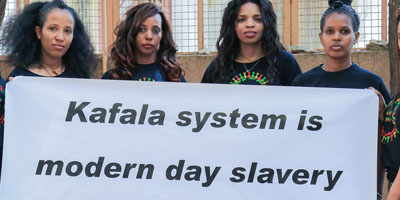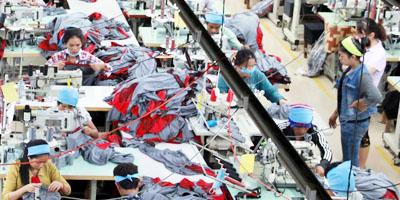The Kafala system establishes a relationship between foreign domestic workers and their local employment sponsors. The system is implemented in many Middle Eastern countries such as Bahrain, Kuwait, Oman, Qatar, Saudi Arabia, the United Arab Emirates, Jordan, and Lebanon where the state permits citizens to employ foreign workers. These sponsors bring the workers, mostly women from impoverished backgrounds, from abroad, often taking their passports for the period of their contracts. Without legal help, and their documents taken as part of the recruitment process, they are basically defenceless against abuse.
These workers have no protection under the host country’s labour laws, and leaving their workplace without permission could lead to the termination of their contract, imprisonment or deportation. At its worst, the system facilitates modern-day slavery, according to Human Rights Watch.
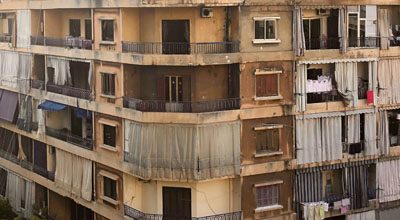
The Kafala system’s high control over worker’s life has led to many incidents such as forced labour, exploitation, forced imprisonments, and physical and sexual abuse. Since the beginning of the pandemic and the economic crisis in Lebanon, suicide by workers has been more frequent. Workers have been left in front of their country’s embassies, without any documents, by employers who are in economic stress themselves.
To better understand how the Lebanese economic crisis has affected the Kafala system, I spoke with three experts on the topic and who have a deep interest in Middle Eastern issues.
Not protected by the law
The first thing that makes the Kafala system favour worker exploitation is that foreign workers aren’t protected by the Lebanese labour law. “The workers aren’t under the new labour law, which excludes any non-Lebanese worker and they don’t really, they can’t really decide to quit this employment. It’s based on the contract that the employer sets, so they can’t change employers or change the terms of their contract,” Hiba Zayadin told me. She is a researcher in the Human Rights Watch’s Gulf researcher in the Middle East and North Africa Division who mainly investigates human rights abuse in Syria, Jordan and the Middle East in general.
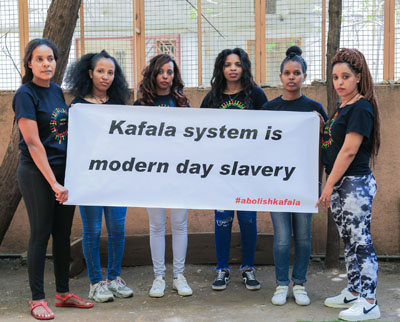
Because the workers are not protected by the law, this leaves a lot of room for abuse. For women, this abuse is mostly sexual and physical, and for men, it’s physical and financial. Financial abuse occurs when the employer doesn’t pay the worker and holds their wages. Basic rights such as minimum wage, social security and working hours are not guaranteed for these workers. This has been the case for years and isn’t expected to change soon..
This system involves racism in Lebanese society and is set up to benefit the local Lebanese and exploits the workers, Zayadin says, and this is reflected in the laws of the country.
Workers are not free to seek better employment and conditions and are not in a position to negotiate with their employer. If the migrant worker reports his employer, most of the time there is a fear of deportation or jail associated with such acts. If an employer reports to the police that his worker ran away or stole something, local authorities can jail or deport the worker as a criminal, and false accusations are common,
Mainly a woman’s issue
Lebanon is largely a patriarchal society. In the case of domestic workers, this patriarchy affects them, since most of the legislators and lawmakers are male, says Dana Hourany, a a multimedia journalist based in Beirut. She specializes in politics, culture and society across the MENA region, writing for Fanack, an independent website on the MENA region written by local correspondents, as well as NowLebanon and The New Arab.
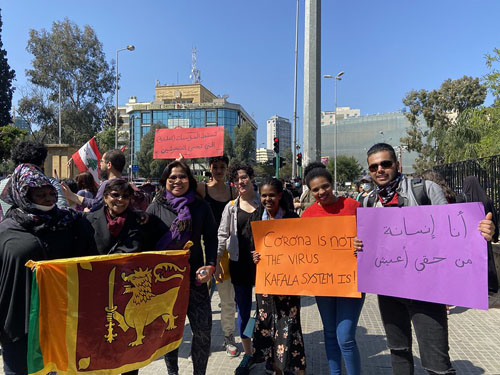
“Here in Lebanon, we don’t have a lot of women in decision-making positions,” she told me. “This affects women in general and women workers in particular. So basically, they don’t really have any laws that protect them.”
With women is not well represented in the law and the judiciary, the situation is even more tragic for woman workers who are considered inferior. Their skin colour and the domestic work they do add to that stereotyping of these women, while the domestic labour these women do is considered unimportant. In Lebanese society, cleaning, cooking and taking care of the kids is considered traditional for women.
Crisis-hit Lebanon
Once the crisis hit Lebanon in 2019, the economic situation became difficult, with the hyperinflation of basic goods such as food, medicine and gas. That happened with the deep devaluation of the Lebanese lira against the American dollar. Before the crisis, migrant workers were paid in dollars and it wasn’t an issue for Lebanese people, but when the crisis hit, the dollar became rare and it became extremely expensive to afford domestic workers. People who couldn’t afford workers anymore even started to sell them on social media platforms such as Facebook.
Another way in which people tried to get rid of their workers was by kicking them out in front of their respective embassies, although the workers did not receive help there since the countries from which migrant workers migrate to Lebanon also benefit economically from exporting that labour.
So Kafala workers were often trapped with nowhere to go.
The race scale
In the Kafala system in Lebanon, there is also a certain “race scale.” Salaries vary according to the workers’ countries of origin.
“It’s a race issue as well because many of them are not white. Oftentimes their wages are based on their sending country. So an Ethiopian is considered – and this is horrible – lower quality than, let’s say, Sri Lankan. So they receive less in wages,” William Christou told me.
Christou is a correspondent at The New Arab’s Levantine covering the politics of the Levant and the Mediterranean. He studied international relations with a focus on the Middle East, and is a researcher with the Orient Policy Center. Previously, he worked as a journalist with Syria Direct in Amman, Jordan.
He said that problems with the Kafala system is also a societal issue, since many Lebanese people don’t see it as a concern. ”Do average Lebanese people care that much? Not necessarily. And the idea of having a system of subsidised labor for ordinary Lebanese families who otherwise wouldn’t be able to afford it is quite appealing to a lot of people,” he said.
Hard to abolish
Although the economic crisis affected the Kafala system, since Lebanon was then no longer a popular destination for domestic workers, the market is still there. The Covid-19 pandemic brought more attention to the issue, with a number of NGOs now focused on trying to change things for the better, although Zayadin is concerned that a lot of the initiatives that aim to help the workers do not necessarily aim for abolition.
Can the system be abolished? The dependence on domestic workers makes it difficult for the system to be changed or abolished, Christou said. “Lebanon is quite a corrupt country, and so they are able to prevent change. There’s not much incentive for the government to make changes.”

